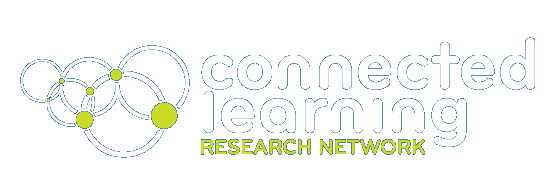Connected Learning Environments and Common Core Standards
August 2, 2013
PROJECTS: Leveling Up
PRINCIPLES: Academically oriented, Peer-supported, Production centered
TAGS: Common Core, WWE
The Common Core Standards for English Language Arts and Literacy for grades 11 – 12 in the United States are meant to mark the readiness of youth to enter college, focusing on reading and writing benchmarks that are necessary to succeed in post-secondary educational contexts and non-academic careers. These standards focus on such crucial skills as writing an argument to support a claim; writing informative texts to convey complex ideas; writing narratives to develop imagined experiences; developing and strengthening writing by revising and editing; and using technology to produce and publish writing in response to ongoing feedback. Common Core standards, as mentioned in a recent NPR story, are oftentimes misunderstood as something that tells teachers what to teach. However, that is not the case. So if they are not tied to teachers teaching specific things in the classroom, could Common Core standards be met through participation in interest-driven and peer-supported communities? Even when parents and educators recognize the personal and social benefits of interest-driven and connected learning experiences, they may feel that these experiences are at odds with developing basic skills. Looking carefully at the learning that occurs in connected learning environments demonstrates that this does not have to be an either/or proposition. Here I consider how a specific connected learning environment supports outcomes aligned with the Common Core in ways that suggest that learning environments can be both guided by youth interests and aligned with shared academic standards.
The Wrestling Boards, as described in previous blog posts, is an online forum community for wrestling fans. The members of the community come together to discuss all things wrestling related. One interesting thing about this community is that it has a strong culture of feedback and help. The culture of feedback and help are what make this connected learning environment such a great example of Common Core standards being fulfilled in the wild.The peer-support on the Wrestling Boards is an important aspect of the community. We see Jonathan, who is 16 from the United Kingdom, doing this: “I give and get feedback often about what I do. I often help/mentor new members of the forum to the best of my ability. At the end of the day, we’re all alike and we’re like a family on Wrestling Boards.” This idea of iteration and improvement found in a peer-supported environment resonates well with the Common Core standard “develop and strengthen writing as needed by planning, revising, editing, rewriting, or trying a new approach, focusing on addressing what is most significant for a specific purpose and audience.” This idea of helping others learn is institutionalized by the administrator and founder, Crayo, who is a 19-year-old from the United Kingdom.
We are the WWE Universe, we are just the “smarter” WWE Universe. There is something in the IWC (Internet Wrestling Community) named “smark”; basically where the wrestling fan is knowledgeable about the business, knows it’s scripted and obviously knows it’s a scripted show. I discuss almost everything with the members, I help the members if they need it, I educate the “marks” about the business and how professional wrestling works, as it’s near-impossible to participate in the IWC if you don’t know about the business, as everyone around you is more in the know.
Again through the community’s peer-support, they develop practices which fulfill two common core standards, both of which are related to information literacy. First, their practices fulfill “demonstrating understanding of a subject” and second, fulfills “assessing information.” Danny, a 24-year-old from the United States, supports Crayo’s statement about the education of members. “Everyone in our community has general understanding of the product and knows the terms. The ones that are misinformed are usually taught the ins and outs of the business by more knowledgeable users. It’s great.”
Along with educating members about wrestling, many youth on the site use their participation as a way to hone academically oriented skills or experiment with new skill development. Common Core standards like “produce clear writing appropriate to an audience”, “develop and strengthen writing for a specific audience”, and “use technology to produce, publish, and update writing in response to ongoing feedback” are learned by participants through their participation on the forum. Mike, a 19-year-old from the United States, has always been interested in creative writing, but his participation in the fantasy wrestling federation offers him a new outlet with constant feedback and makes him recognize that it has potential as a viable career path. The academic skills, practiced and developed as part of participation in the community, are supported because of the production-centered nature of the environment.
For many, production is a valued part of their participation. Zach, a 17-year-old from Europe, said, “I’ve never seen the forum so active and it’s just a lot of fun posting in character and typing up long posts and such telling off other wrestlers. Kind of makes you feel good. I enjoy helping as well.” Here, Zach is describing activities that fall under the standard “Write narratives to develop real or imagined experiences or events using effective technique, well-chosen details, and well-structured event sequences.” This through-line of helping others learn is part of the shared purpose of the community, along with sharing the enjoyment of professional wrestling. Again, Zach talks about his participation in a manner that emphasizes learning and improvement, but also the shared community of it as well. “I really look into Over the Ropes [the community’s fantasy wrestling federation] and try to help them improve it by writing reviews of their work so they can improve.” His providing feedback to those writing in the community both allows them to improve their writing which meets Common Core standards as described above, but also offers him the opportunity to “Write informative/explanatory texts to examine and convey complex ideas, concepts, and information clearly and accurately through the effective selection, organization, and analysis of content.” Together, this group of professional wrestling fans have created their own connected learning environment, and use skills to enhance and improve their participation in their community which meet Common Core standards. Connected learning builds on the foundation of learning and literacy that is the spirit of the Common Core. Connected learning supports youth’s development of foundational literacies and competencies standards, but also helps them become 21st century learners, who can think creatively, display their expertise in a subject that interests them, and utilize new information to better enhance their community.


